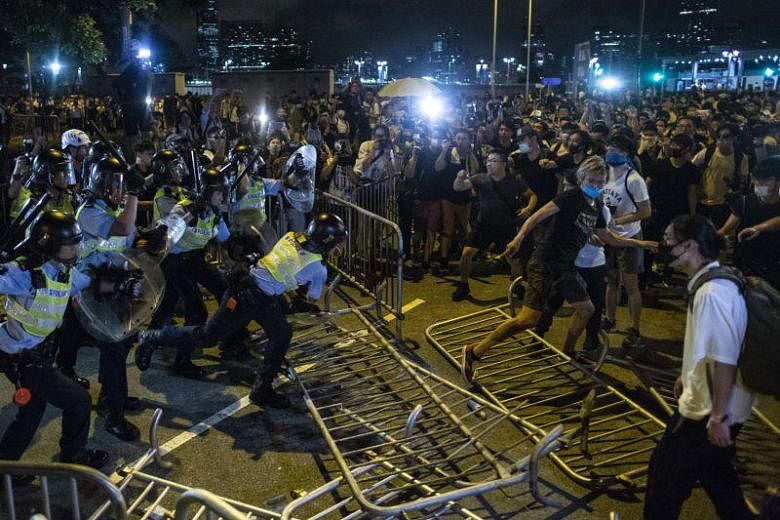HONG KONG • While the move to secure a quick passage of the extradition Bill in Hong Kong has stoked fears in the business community, observers remain optimistic that the unease will dissipate.
Economics associate professor Terence Chong of the Chinese University of Hong Kong believes companies will remain in the territory, while acknowledging that foreign groups feel that "there is some instability now in Hong Kong".
"Most companies in Hong Kong are small and medium-sized en-terprises and they are based here, so they are most probably not able to move out. And for big companies like HSBC and so on, (they will) probably not move out either," he added.
Associate Professor Chong noted that many firms are still looking to enter the Chinese market, and Hong Kong, being the gateway to the mainland, is the best place to do so.
His views are shared by ING economist Iris Pang, who said the protests and the extradition law "should have limited impact on foreign investments in Hong Kong".
"Until 2047, Hong Kong's legal system is still independent from the administration," she added, referring to the high degree of autonomy guaranteed for 50 years under the "one country, two systems" principle.
The controversial extradition Bill, which allows Hong Kong to send fugitives to mainland China, will be read a second time in the Legislative Council today, and could be put to a vote on June 20.
Fresh protests have been called, with a growing number of small businesses and organisations saying they will join the cause. Critics of the proposed changes to the extradition law say the amendments can be used to persecute dissidents and that fugitives sent to the mainland will not have a fair trial.
The snowballing unhappiness led to Sunday's rally - the biggest since the handover in 1997 - where more than a million protesters turned up.
But Chief Executive Carrie Lam showed no signs of backing down yesterday as she warned people not to take radical action when debate on the Bill starts today.
Local and foreign business chambers, consulates and various people in different sectors have expressed concern that the Bill could hurt investor confidence in the city.
One of the most vocal foreign bodies is the American Chamber of Commerce (AmCham), which has stressed that it has "serious reservations" about the Bill, and urged the government to rethink the move.
AmCham president Tara Joseph was reported by Fortune on Monday as saying that the Executive Committee should not brush off the concerns of Sunday's protesters: "Again, we ask the government to drop or delay the tabling of this Bill and preserve Hong Kong as a leading international business centre."
In late May, the European Union Office in Hong Kong sent a formal diplomatic note to Mrs Lam as a form of protest against the Bill.
Australia Chamber of Commerce chairman Andrew Macintosh said on Monday that given its substantial stake in the city, "we are concerned about the way Hong Kong is perceived as a stable international business destination", even as it welcomes enhancements to the law.


